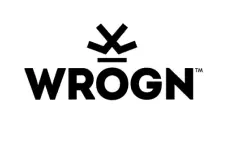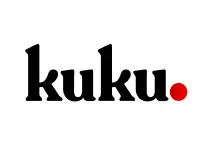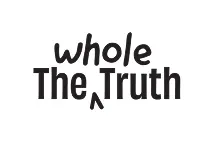Sales Turnover Policy
Get ₹50 Lacs Cover,
Starting At ₹7,000*/year
Quotes in seconds. Coverage in minutes.
Trusted by




















Policies Sold
on Google
Total Sum Insured
Sales Turnover Policy
Get ₹50 Lacs Cover,
Starting At ₹7,000*/year
Get Quotes in a Few Steps
Policy Provided by



Get ₹50 Lacs Cover,
Starting At ₹7,000*/year
Sales Turnover Policy
Protects all transportation of goods related to annual sales turnover
WhyChoose BimaKavach?

Speed
Quotes in seconds, coverage in minutes!
Service
Dedicated support, quick replies!
Savings
Best prices, maximum savings!
Understand
Your Insurance
Before Buying
Sales Turnover Policy Made Easy
Click on any topic to see the answer.
To share a topic, click the link icon next to it.
Understand
Your Insurance
Before Buying
A Sales Turnover Policy (STOP) is a type of marine insurance that covers a company's entire annual sales turnover, rather than insuring individual shipments. It is a flexible policy that automatically covers all transits related to a company's sales, from imports and domestic purchases to exports and returns. Instead of declaring each shipment, the policyholder only needs to submit their sales turnover figures periodically.
See More...A Sales Turnover Policy in Marine Insurance offers several practical benefits that make it suitable for businesses with regular shipments across India or abroad. Here are some key features:
Comprehensive coverage
This policy covers all types of transits linked to your sales activities. It includes imports, domestic purchases, movement between warehouses or branches, and exports. You do not need different policies for different routes.
Flexibility
One single policy can cover your entire sales-related transit for the year. This helps reduce paperwork, manual errors, and time spent on issuing multiple policies.
Periodic declarations
Instead of declaring each shipment one by one, you only need to share your sales turnover figures at regular intervals. This makes it easier to manage and track your coverage.
Premium savings
Your premium is based on your estimated annual sales turnover. This approach is often more cost-effective than buying separate policies for every shipment.
Adaptability
The policy can be customised to match your business needs. Whether you are a manufacturer, distributor, or trader, the terms can be aligned with how your goods move across locations.
Free cover for purchase transits
If you pay the minimum premium or choose a minimum sum insured, the policy also includes coverage for goods you purchase—at no extra cost. This means both incoming and outgoing shipments are protected under the same cover.
A Sales Turnover Policy simplifies transit insurance and helps protect your business without unnecessary steps or hidden risks.
A Marine Sales Turnover Policy is important for businesses that move goods regularly as part of their sales operations. It helps manage transit risks while keeping the process simple and efficient.
Reduces financial risk
Goods in transit can be damaged, lost, or stolen due to accidents, fire, theft, or poor handling. This policy ensures that you are protected from such losses, helping you avoid large, unexpected costs.
Saves time and effort
Managing multiple transit policies for each shipment can be time-consuming. With this policy, you avoid repeated paperwork and reduce chances of missing coverage.
Supports smooth operations
Since the policy stays active throughout the year, your goods are always covered. You can focus on sales and delivery without delays caused by insurance gaps.
Matches how your business works
If your business depends on regular sales, dispatches, and returns, this policy works in line with your actual sales movement. It adjusts to your volume and activity.
Helps in planning and budgeting
Because the premium is based on your projected annual turnover, you get a clear idea of the insurance cost upfront. This makes financial planning easier.
In short, an Annual Sales Turnover Policy helps protect your business, save time, and keep things simple—so you can grow with peace of mind.
This type of marine insurance offers several advantages that help businesses manage marine transit risks with ease. Here are the key benefits:
Reduced paperwork
There is no need to declare every shipment. This policy cuts down the routine paperwork and lowers the time spent on insurance tasks.
Seamless coverage
All sales-related transits are automatically covered. This includes imports, domestic dispatches, transfers, and exports, giving you full protection without gaps.
Predictable premium
Since the premium is based on your total sales turnover, you can plan your insurance costs well in advance. It adds certainty to your budgeting.
Cost-effective
This policy often costs less than buying separate transit covers for each shipment. It helps you save money while staying fully insured.
Streamlined operations
You do not have to keep tracking each shipment for insurance. The process is simpler and faster, allowing your team to focus on running the business.
In short, an Annual Sales Turnover Policy (STOP) is an easy and cost-effective way to protect your goods during transit while keeping your operations smooth and stress-free.
Sales Turnover Policies follow standard insurance clauses known as Institute Cargo Clauses (ICC). These define which transit risks are included in the cover. You can choose between ICC (A), ICC (B), or ICC (C) depending on the type of goods and the level of protection you require.
ICC (A) – Broad Coverage or “All Risks”
This offers the widest level of protection. It covers almost every type of accidental loss or damage during transit, unless clearly excluded in the policy. Common exclusions include delays, natural spoilage, and poor packing.
- Includes: fire, theft, breakage, overturning, water damage, and piracy.
- Suitable for: fragile, high-value, or sensitive goods.
ICC (B) – Selected Perils Including Water Damage
This covers specific named risks such as fire, collision, overturning, earthquake, and water entering the transport container.
- Suitable for: sturdy goods that still need protection from possible water-related losses.
ICC (C) – Basic Transit Risk Cover
This clause includes cover for only major accidents like fire, derailment, or sinking. It does not include theft, minor damage, or water exposure.
- Suitable for: goods that are low-cost or highly durable, where small damages do not affect operations.
Selecting the right clause under your Marine Insurance helps control insurance costs while ensuring the right level of cover for your business shipments.
A Marine Sales Turnover Policy (STOP) includes protection against several risks that goods face during transport. The coverage is defined by the chosen Institute Cargo Clause—A, B, or C. Each clause includes different levels of protection.
Under ICC (A) in Marine Insurance – All Risks Cover
This offers the most detailed protection covering a wide range of perils during marine transit.
Overturning or Derailment of Land Transport
Fire or Explosion Damage
Theft and Pilferage
Accidental Damage to Goods
Earthquake, Lightning, or Volcanic Damage
Stranding, Grounding, or Sinking of Vessels
Damage from Handling or Transshipment
Package Loss During Loading or Unloading
Jettison (Cargo Thrown Overboard to Save the Ship)
Collision or Capsizing
General Average (Shared Cost in Emergency Situations)
Non-delivery of Goods Due to Loss or Damage
Under ICC (B) in Marine Insurance – Limited Risk Cover
This provides moderate cover for specific named risks.
Overturning or Derailment
Fire and Explosion Loss
Earthquake, Lightning, or Volcanic Event Damage
Discharge of Cargo at a Port of Distress
Stranding or Grounding
Collision or Capsizing
Under ICC (C) in Marine Insurance – Basic Cover
This provides essential protection for the most fundamental transit risks.
Overturning or Derailment
Fire and Explosion Loss
Discharge of Cargo at a Port of Distress
Stranding or Grounding
Collision or Capsizing
The chosen clause under your Marine Insurance decides how much risk is covered during your goods’ journey. You can pick the right Marine Insurance based on your product type, route, and risk level.
While a Marine Sales Turnover Policy (STOP) offers wide coverage, there are specific scenarios where claims will not be entertained. These exclusions are standard and important to understand to avoid surprises during claims.
Intentional Damage or Careless Handling
If the damage is caused due to deliberate actions or negligence by your team, the insurer will reject the claim. The policy is meant for accidental and unforeseen losses only.
Minor Losses During Normal Movement
Losses such as small scratches, evaporation, or drying out during normal transit are excluded. These are considered part of regular wear and tear.
Goods That Spoil by Nature
Perishable or self-damaging items like fruit, rusting metal, or heating chemicals are not covered unless they have separate or special coverage.
Inadequate or Unsafe Packing
If packaging is too weak or faulty to protect the goods in transit, resulting in damage, the claim can be denied. Proper packaging and photo proof at dispatch is advisable.
Late Delivery or Business Loss From Delay
Financial losses from delayed delivery, including missed sales or penalties, are not covered—even if the delay was due to an insured event.
Using Damaged or Unsafe Vehicles
If goods are transported using a faulty or unfit vehicle or container and damage happens, the policy will not compensate. Always use reliable and roadworthy transport methods.
Notify Us
As soon as the loss or damage happens, contact us within 2 days. Share all relevant details and documents, such as photos or reports. We will make sure the process starts without any delays.
Surveyor Visit
Once notified, a surveyor will visit your site within 1–2 days to assess the damage. Please avoid moving any damaged items until the surveyor arrives. After that, we will take care of the next steps.
Submit Required Documents
We will guide you through submitting the necessary documents, including the claim form, incident notes, and financial records. Our team will ensure everything is submitted correctly and on time.
Claim Assessment & Approval
Once the documents are submitted, the surveyor will evaluate the claim and provide a settlement amount based on your policy terms. After approval, the insurer will finalise the settlement.
Payment Processing & Claim Closure
Once the settlement is approved, payment will be processed and issued to you or your beneficiary. After payment, the claim will be closed. If any further issues arise, we will be here to support you until they are fully resolved.
Fire Damage During Warehouse Dispatch
In 2022, an electronics wholesaler in Delhi was sending a bulk order of LED panels to retailers across Punjab. While loading the goods from the warehouse, a fire broke out due to an electrical short circuit. Several packed cartons were damaged before the fire was brought under control. The company had an active Marine Insurance. The insurer approved a claim of ₹12.4 lakhs to cover the damaged stock and emergency transport expenses. This helped the business dispatch a fresh lot quickly and avoid disruption.
Water Damage During Inter-City Movement
In 2023, a furniture exporter in Jaipur was moving a shipment of modular wardrobes to a buyer in Chennai. During transit, heavy rains led to water seepage into the truck, damaging a portion of the wooden items. The goods were covered under the annual turnover policy. The exporter filed a claim, and the insurer paid ₹4.6 lakhs for damaged units and ₹22,000 towards restacking and rewrapping. This helped the business manage losses and keep the delivery on schedule.
Crate Breakage During Unloading
In 2021, a plastic goods manufacturer in Surat shipped crates of kitchen containers to a distributor in Ranchi. While unloading, a set of crates fell from the lorry due to improper handling by the unloading team. Several items were cracked or broken. The distributor reported it immediately, and the manufacturer raised a claim under their Marine Insurance. The insurer approved ₹78,000 for product damage and ₹5,500 for site survey and labour costs. The settlement helped the company replace the shipment quickly and maintain customer trust.
Real Review for Real Speed
Vishal Sharma
FounderAutopilot Design


Common Questions Answered
Common Questions Answered
Have questions or need to speak to an expert?
Have questions or need to speak to an expert?
Learn More About
Sales Turnover Policy
Ready To Buy
Business Insurance?
Join 4,000+ Indian businesses & protect your business today.